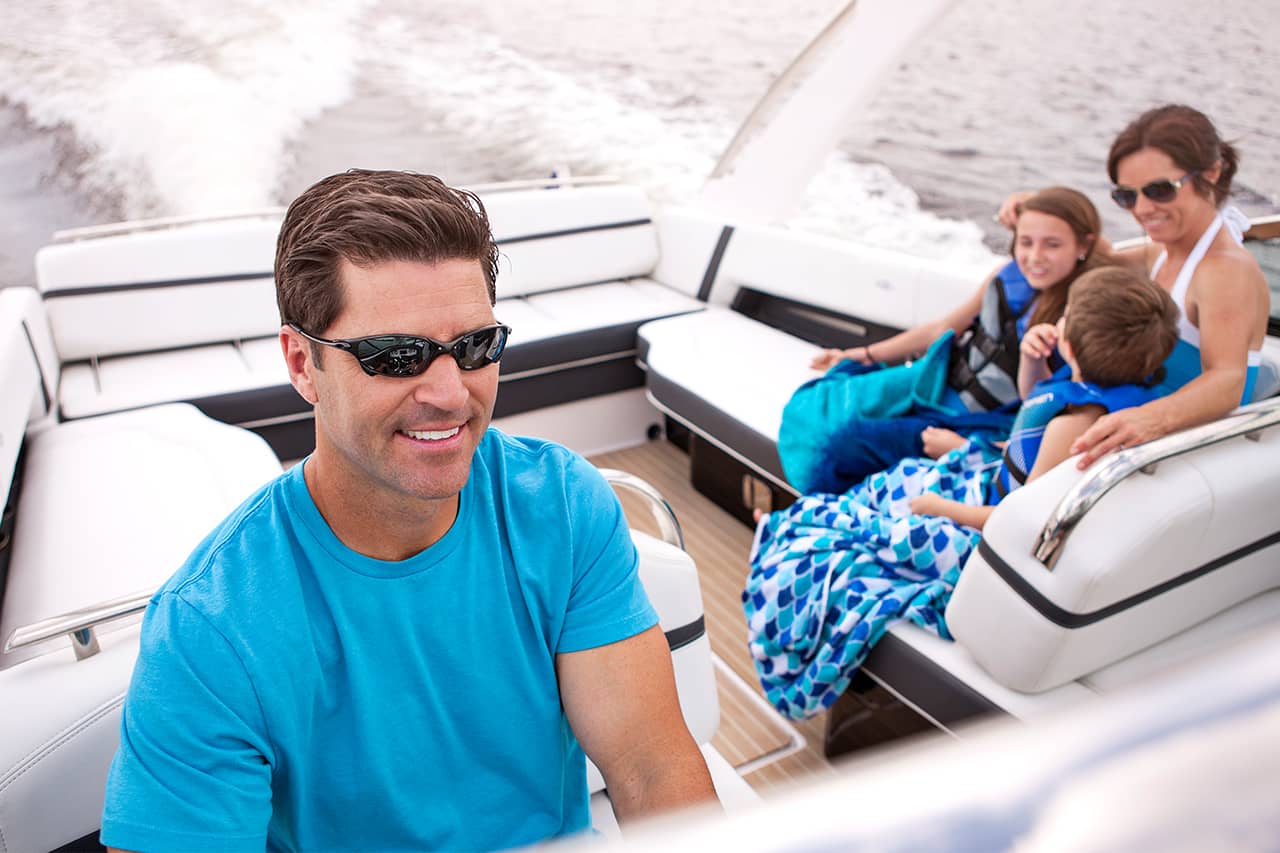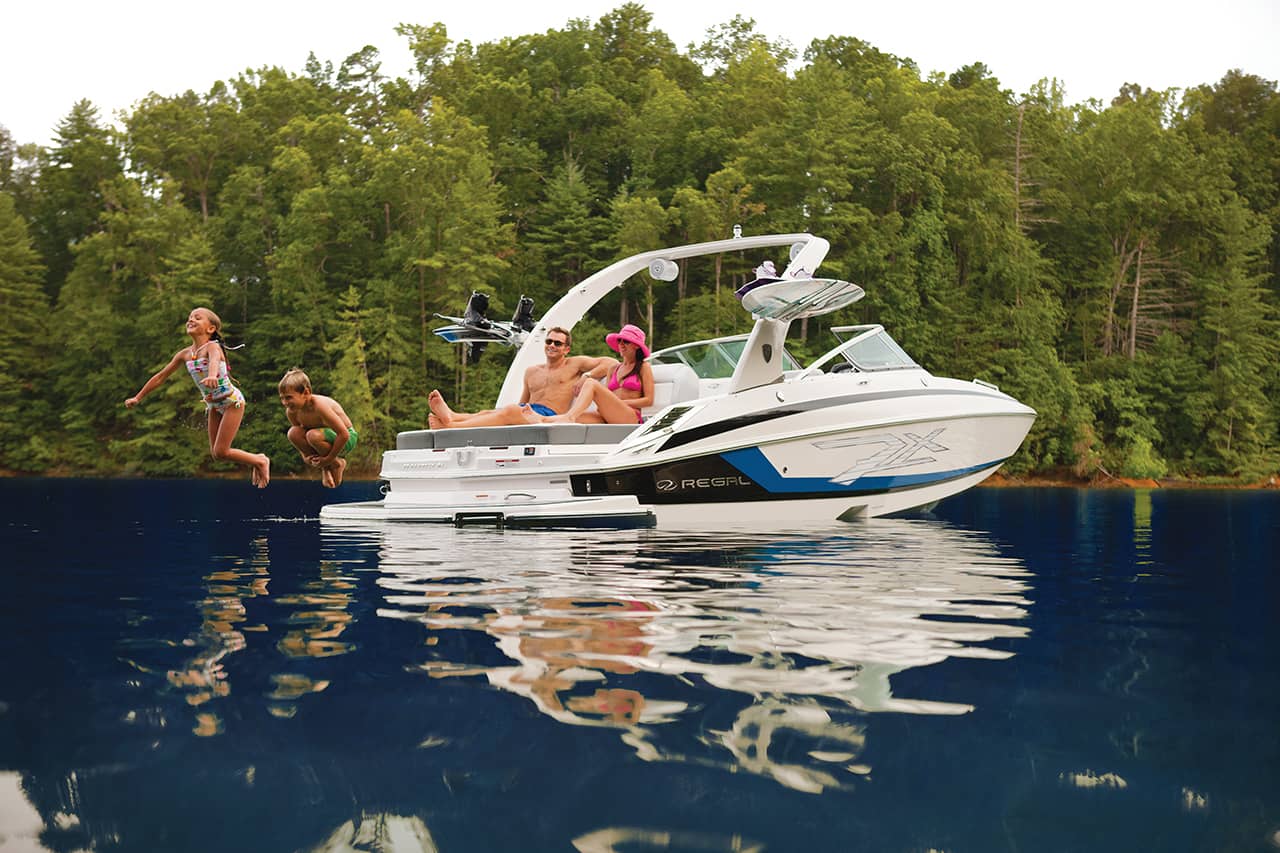All the Costs of Owning a Boat
Aspiring boaters are often surprised at how affordable the path is to boat ownership! Boats can be financed just like homes and cars. In fact, the average monthly payment for a new recreational boat is just $250. But owning a boat is more than just backing it into the water off the trailer. There are other regular costs of owning a boat that you should take into consideration before settling on a price range for your new boat, including but not limited to dock fees, registration and insurance, Coast Guard documentation, fuel, accessories, care, and maintenance. However, these costs are manageable and well-tempered when done correctly and regularly, giving you peace of mind and de-risking the chance for expensive mechanical issues, as well as protecting your water-bound investment.

Be sure you consider all the expenses of boat ownership so you can best set a target price for your new boat.
Docking and Storing Your Boat
Dock fees and storage rates vary depending on your summer and winter conditions, but they are a must wherever you live.
Unless you’re covering your boat and parking it on your property or are lucky enough to own your own dock space, boat storage is an expense of boat ownership that you have to consider when buying a boat. (On that note, remember, if you have to move your boat back and forth to your “free” space you’ll need a trailer if it doesn’t come with your boat. Those cost between $2000 to $5000 on average.) For your common-sized recreational boat, dock space can range from $1000-$5000 per season. If you want to store it indoors where it can be washed after each use and dropped back in the water multiply that cost by 1-2x.
Then, you’re likely going to need off-season storage as well, unless you live in a few lucky locations where it’s always boating season. During the winter, storage costs less: between $50 and $200 per foot of boat indoors, and $20 to $50 per foot of boat outdoors, per season, which sets it below your in-season dock storage. If you need to winterize your boat, plan to add $200-$300 to prep and cover it for the season. So this will be less expensive than your dock fees for sure.
Registration and Documentation
Registration and documentation isn’t going to set you back that much.
Varying by state, recreational boat registration usually ranges from $25 – $250—in most states, bi-annually. The best place to find this info is actually at your state’s department of motor vehicles website. You’ll likely register your boat—and your trailer, don’t forget about that too— when you file the title of your new boat in your name. Thankfully a trailer costs a lot less than the boat registration. Do yourself the favor of getting it all done together in one visit.
Boat documentation in the boating world means “Coast Guard documentation.” This registration gives your boat “flagged vessel” status that comes with privileges such as international recognition of your boat and priority treatment when it comes to getting a loan. Though boat documentation is optional if your boat is 26 feet or longer, if you’re financing a boat that size or larger, this may be required. Rest assured if you do, the current cost is just $133 a year, with multiple year advance payment option available.
Boat Insurance
Insurance is essential to enjoying your boat. Be sure you’re not paying too much or covering too little.
Chances are, you live in a state that doesn’t require boating insurance. But chances also are that your financier and dock require it. With rates much lower than auto insurance, you can expect your insurance, which will vary depending on the type of water, activity, size, condition and hours on the water, to come in at around $200-$500 per year for a recreational boat, though it can go up as high as $1000 in some cases. To see how much insurance will be for the type of boat you’re envisioning, get a quick quote from our team right now.

Every hour on the water is an hour well spent. Planning ahead for maintenance, upgrades, and fuel costs sets you up to live your best boating life.
Boating
Accessories
While these might not all qualify as essentials, depending on your and your family’s expectations of the boating life, plan on annual accessory expenses.
Ranging from electronics, like navigation equipment and audio-visual items like speakers; and watersports towing and activity items you can add a little at a time. But be sure that before you drop the boat in the water you’ve got your safety kit including but not limited to first aid essentials, paddles, an air horn, flares, and a life vest for each guest. The cost here can range from a few hundred dollars to as much as you’re willing to invest in entertaining your guests.
Care and Maintenance
Regular maintenance is a must not just for safety, but to avoid significant repair costs down the line.
We’ve already talked about winterization in the docking and storage section. But just like with your cars and motorcycles, boats require regular maintenance to retain value and run at optimum condition. The newer the boat, the lower the maintenance costs will be. The type of storage and water also greatly affects the cost: salt water has a lot more impact on the hull as well as the fixtures. A rule of thumb is that annual maintenance for your boat should be around 10% of the value of your boat. However, buying a newer boat with resilient hulls made of fiberglass or aluminum will cost far less in maintenance than an older boat, even if it’s been well-maintained, and if you’re running in freshwater you can also expect it to be on the lower side.
Fuel Expense
A boat uses a lot more fuel than an car. And that adds up pretty quickly.
This can range widely if you have, say a pontoon boat, versus a powerboat you’re using to tow wakeboarders all weekend every weekend. Let’s split the difference. A pontoon boat uses 5 gallons an hour and a power boat can cruise on average using 25 gallons – we’ll take that as 15 gallons an hour. A five hour trip at $2.50 a gallon will cost you $187.50 per outing. If you take your boat out 30 times for a five-hour trip over an east coast summer, you’re looking at $5625 in gas alone. Just something to think about. Because we are the first ones to say that every hour out there is worth it.
Do a deep dive into your boating life to best assess your potential costs of owning a boat.
In the end, so much depends on the type and size of boat, frequency of use and your location. But covering all of the items we’ve talked about above, you can expect annual additional expenses that range roughly between $10,000 and $20,000 and up for the most popular outboard recreational boats found on Boats For Sale. We hope this begins to inform how much you decide you want to spend when making that step towards Boatification™.
